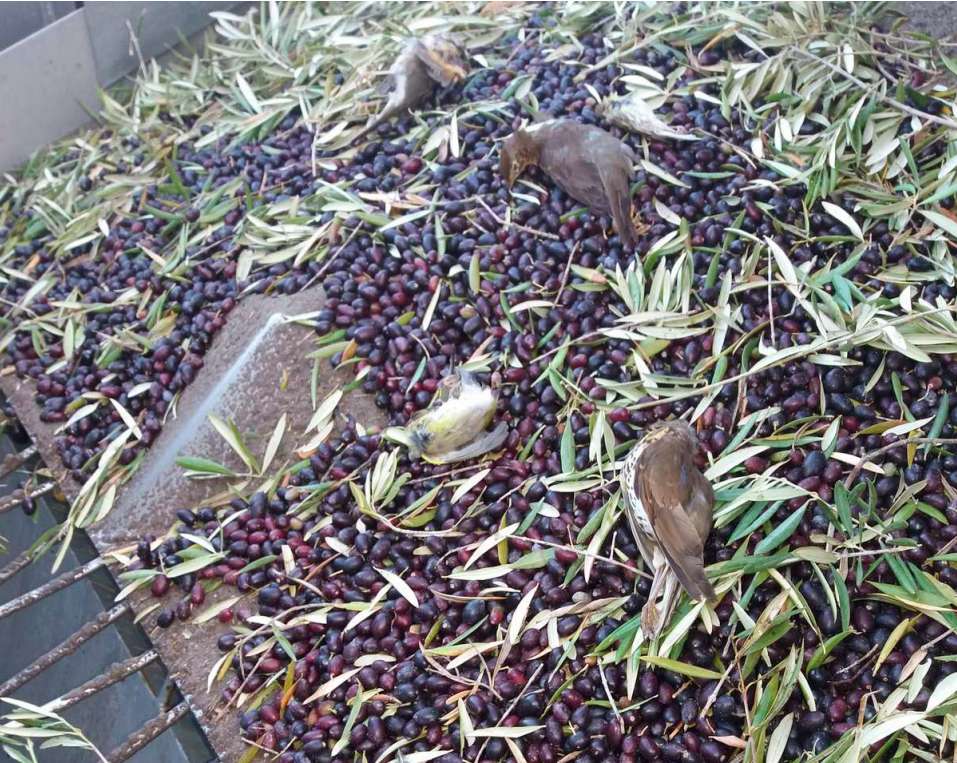Millions of songbirds are vacuumed out of trees by machinery and killed each year during the Mediterranean’s olive harvest season, according to researchers.

Between October and January, millions of birds from Europe escape the winter and fly south to the Mediterranean basin and roost in olive bushes — largely in Spain, Italy, Greece, Portugal and France.
The olive trees are stripped of their fruit at night because cool temperatures help preserve the aromatic compounds, according to an editorial piece written in Nature.
But the light and noise of the harvesting machines blind and disorientate the sleeping birds, which end up getting sucked into the machinery on a massive scale, researchers warn.
“The machinery is perfectly fine if used during the day, as birds are able to see and escape while they are operating,” Vanessa Mata, the lead researcher at Portugal’s Research Center in Biodiversity and Genetic Resources, told The Independent.
“However, during the night, they use very strong lights which confuse the birds and lead to their death as they are ‘sucked in’ by the tractor.”
WATCH: Are developers destroying habitat of Ontario’s endangered species?

The birds that are vacuumed and killed by the harvesting machines include black-headed warblers, robins, greenfinches and wagtails.
In Andalusian, Spain, researchers said around 2.6-million birds are vacuumed up every year. As a result, the government is banning the practice of night harvesting.
But olive harvesting during the night still happens in other areas. For example, in Portugal, around 96,000 birds are also killed this way.
The Portuguese Society for the Study of Birds (SPEA) is calling for a stop to nighttime harvests.
“The Birds Directive says that they should not be subject to disturbance in the rest period,” SPEA ornithologist Domingos Leitao said.
“When negative impacts like these are detected, the authorities must act swiftly and accordingly. We are talking about hundreds of thousands of dead birds.
Martin Harper, the director of conservation of the Royal Society for the Protection of Birds told the Independent that a number of farmland birds in Europe have plummeted over the last three decades, “and this is another shocking example of how modern agricultural practices are impacting our bird populations.”
He said local governments should encourage “sustainably” managed olive grows, which are beneficial to wildlife.
WATCH: WWF study shows that Canadian wildlife is facing ‘serious challenges’

Agriculture has been identified as the largest global extinction threat to birds, according to a 2017 study.
In Canada and the United States, 74 per cent of farmland bird species shrank in number from 1966 to 2013, the study said, adding that it was in large part due to pesticides and harvesting.
A 2017 study by the World Wildlife Fund (WWF) Canada said between 1970 and 2014, bird populations in the country dropped by around 51 per cent due to climate change, habitat fragmentation and use of “modern machinery.”





Comments